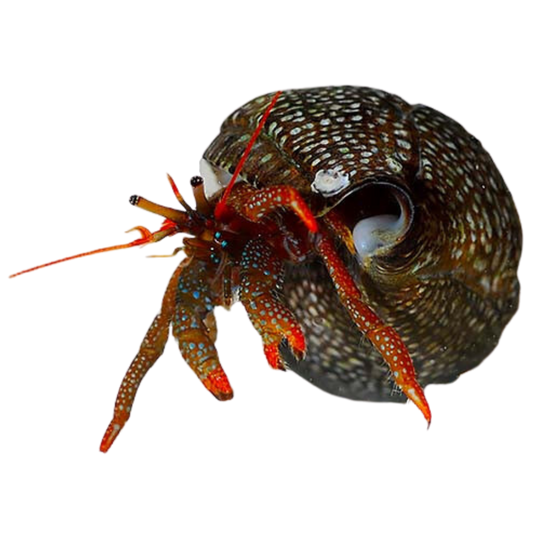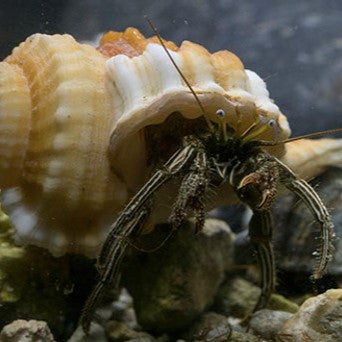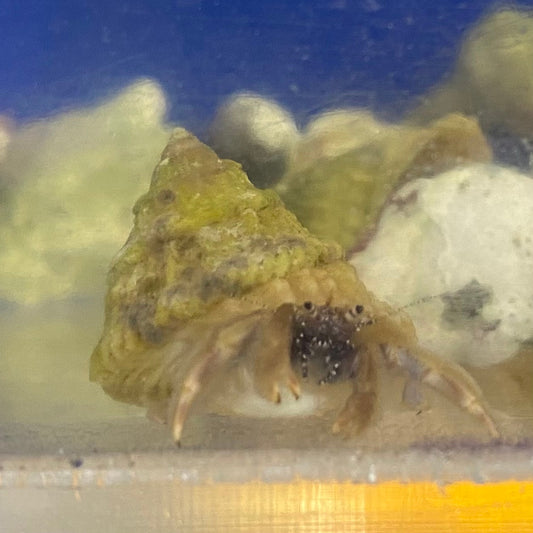Collection: Hermit Crabs

These little scavengers are hardworking, reef-safe cleanup crew members that help keep algae, fish waste, and leftover food in check; they play a vital role in maintaining the health of your saltwater aquarium. Their constant foraging not only keeps the tank pristine but also adds dynamic movement and interest to your reef setup. Whether you’re just starting out or dialing in a mature system, marine hermit crabs are a no-brainer when it comes to building a reliable cleanup crew.
We offer a rotating selection of saltwater aquarium crabs—each one carefully chosen for its usefulness, temperament, and compatibility in reef environments.
Spotlight on Our Hermit Crabs
Blue Leg Hermit Crab
Small, peaceful, and always busy, the Blue Leg Hermit Crab is a reef-safe favorite from the Caribbean. It’s an easy keeper that thrives in standard reef conditions and spends its day picking through rock and sand for algae, detritus, and uneaten food. As a member of the Diogenidae family, it plays well with others—just make sure you’ve got extra shells on hand. At just about an inch max size, it’s a low-profile worker that pulls more than its weight.
Scarlet Reef Hermit Crab
The Scarlet Reef Hermit Crab (Paguristes cadenati) is recognized by its bright red legs and yellow face—peaceful in nature and efficient at consuming algae and detritus. Native to the Caribbean and Western Atlantic, they like stable water conditions (72–78°F, pH 8.1–8.4, salinity 1.023–1.025). Despite being small, up to 1.5 inches, they have a big appetite for nuisance algae like filamentous and hair types, as well as cyanobacteria.
Caring for Hermit Crabs
-
Diet: Omnivorous scavengers that eat algae, detritus and leftover food. Supplement with marine pellets or dried seaweed as needed.
-
Tank Setup: Lots of live rock for grazing and hiding. Make sure to have plenty of empty shells for growth and molting.
-
Behavior: Generally peaceful but can get aggressive if no shells are available. Monitor their behavior and provide enough resources to prevent conflicts.
Ready to stock your reef with some hard-working critters?
Check out what’s in today—our inventory changes often.
 Sold out
Sold out Sold out
Sold out Sold out
Sold out Sold out
Sold out Sold out
Sold out












